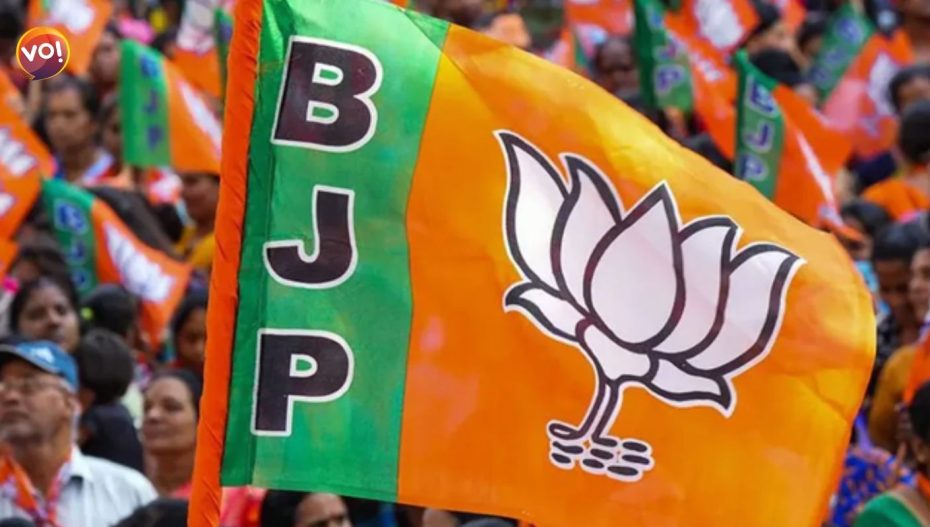With the Congress and Opposition parties weaving the narrative of Modi aiming to end reservation, a large section of Dalits in Haryana is wary while voting the BJP to power for the third term.
Dalit votes are crucial for the BJP, not just to reach its goal of securing over 400 seats for the NDA, but even to replicate its success from the 2014 and 2019 general elections.
However, partially due to the Opposition’s campaign and largely due to statements by BJP leaders including Arun Govil, Jyoti Mirdha, Anantkumar Hegde, and Lallu Singh, the fear of a possible change in the Constitution has grown stronger among Dalits.
While addressing a public meeting in his constituency of Uttara Kannada in March this year, BJP MP Anantkumar Hegde said his party needed over 400 seats to “undo the additions and distortions that the Congress introduced to downgrade Hinduism”.
While the BJP distanced itself from the speech and denied Hegde a ticket to contest the ongoing Lok Sabha polls, other party leaders went on to make similar claims.
The BJP — with Modi and Amit Shah at the forefront — has been trying to assuage this fear by accusing the Congress of trying to take reservations away from Dalit and give them to Muslims.
But according to various Dalit leaders in Haryana, there are fears among the Scheduled Castes in the state that the BJP could be considering doing away with the current reservation offered to them.
“Amendments to the Constitution have been made on several occasions in the past. But this is the first time that the BJP’s MPs and Lok Sabha candidates have themselves gone on the record to say that the party needs 400-plus seats to change the Constitution,” Rajwant Dahinwal, an advocate from Rewari and a Dalit activist, said. “This has spread fear across the SC and ST groups that the reservation given to them will not be [retained] if the BJP comes to power again with a big mandate.”
It’s a sentiment that several Dalit leaders echo. On its part, however, the BJP dismisses these fears as unfounded.
“The Constitution can’t be changed just like that. PM Narendra Modi and HM Amit Shah have repeatedly said that there is no cause for Dalits to worry,” said Suresh Danoda, general secretary of the BJP’s SC Morcha in Haryana.
But Dalit leaders are far from convinced. These concerns go beyond simply losing reservation and stem from a more fundamental problem of inequitable distribution of its benefits among Haryana’s Scheduled Castes.
Several underprivileged castes are not able to get the fruits of the present reservation because these benefits are largely cornered by the socially better-placed castes like Ravidassias.
“In 1994, the Bhajan Lal government divided the Scheduled Caste population into two categories — A and B — offering 50 per cent of reserved seats to Block A, the underprivileged castes, on a preferential basis. However, this was set aside after it was challenged in the Punjab and Haryana High Court,” Dalit leaders said, adding that he hoped that Congress leader Rahul Gandhi’s promise of ‘jitni jiski aabadi, utna uska haq (rights proportionate to population)’ could help the underprivileged SC castes.
SCs form a substantial part of Haryana’s population — according to the 2011 census, they account for 20.2 per cent of the state’s 2.53 crore people.
In the 2019 Haryana assembly elections, the BJP won five of the 17 seats reserved for SCs — two down from the nine it won in 2014. The Congress, on the other hand, won seven as compared to four it won in 2014.
According to activists, there are six reasons the state’s Dalit groups are apprehensive of the BJP despite concerted efforts to allay their fears.
The first is a perceived rise in anti-reservation sentiment in the country. For this, Rajat Kalsan, another advocate and Dalit activist, cites the 2018 anti-reservation protests at Jantar Mantar where a little-known fringe anti-reservation group called Aarakshan Virodhi Party burned copies of the Constitution. Dalits saw this as the BJP “testing the waters” before actually changing the Constitution, he said.
This fear was compounded by the prime minister’s promise during his budget speech that his government would make ‘bade faisle’ (big decisions) during its third term, as well as the remarks made by other BJP leaders.
This came two years after the BJP-led government’s flagship government recruitment web portal — the Haryana Kaushal Rozgar Nigam (HKRN) — sparked a controversy in the state. Launched in 2021, the web portal is aimed at hiring contractual staff at the various government departments, boards, and universities.
Then, there is the fear that the BJP government, through the state’s police, is creating a perception that the SC/ST Act — enacted to prevent hate crimes against Dalits and tribal people — is being misused.
According to the Haryana State Review (Police) by the National Commission for Scheduled Castes dated 3 March, 2018, the conviction rate in the cases under the law was 0 percent, 6.97 percent, and 7.74 percent, respectively, in 2014-15, 2015-16 and 2016-17. Additionally, the meeting minutes say that approximately 25 percent of cases were closed by the police.
According to activists, there’s an apprehension that a narrative is being created to ensure that the law, currently stringent, is either diluted or abolished entirely.
“Dalits are genuinely afraid that the BJP returning to power would put the Constitution in danger,” he said. “Even now, Dalits (in Haryana) are not getting enough jobs because there aren’t enough vacancies and most of the (government) hirings were through the HKRN.”
But like BJP SC Morcha president Danoda, the party’s former state chief and its current national secretary OP Dhankar dismisses these fears, saying they were being “created by the Opposition to defame the BJP”.
Also Read: Lok Sabha Polls: EC Updates Phase 5 Voter Turnout at 62.2%












